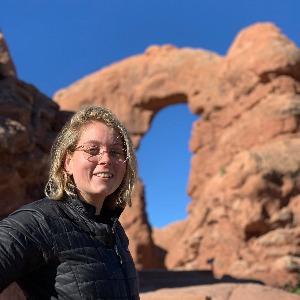 Alison Halderman Feb 22, 2016 04:41 | Really happy to be part of this conversation. Will be reading resources and proposals as I can, and commenting. Hoping a few more folks will spread my proposal's idea to those who may want to participate even this year,in March and April. Here's to more fun while facing the scariest challenge humans have ever had. |
 Andrew Gaines Feb 22, 2016 08:34 | The question of how to reach masses of people to solve climate change is the most important question of our time.this is the key point of change for success. This contest is based on the belief that local individual changes will add up to solving global warming. Perhaps in some theoretical world they might. We certainly must amplify the multitude of local changes that are already going on in areas such as Permaculture, Transition Towns, renewable energy and improved industrial design. But in addition we have to shift consciousness to affect the large-scale drivers of climate change: the transnational organizations, global trade agreements, devotion to economic growth, inefficient industrial design, psychologically manipulative advertising, dis-information, and undue corporate influence on governments. There is massive power mobilized against us, and they are psychologically savvy. Putting this together, we need a whole system change to solve global warming. Pope Francis' encyclical is a thoroughly thought through expression of what is involved in whole system change; so as Annie Leonard's The Story of Stuff series. It is not just about piecemeal on the ground changes. In this context we should ask: what will it take to win? I suggest that will take mobilizing thoughtful passionate public will to transition from sure ecological self-destruction to a life-sustaining society - a society that is ecologically sustainable and works in collaborative goodwill for the well-being of the whole society. I am spearheading the Inspiring Transition initiative as a vehicle whereby (potentially) millions of groups and their members can seed the idea that we are transitioning to a life-sustaining society into mainstream culture, and show ways that people can contribute to the transition within their sphere of influence. Our goal is audacious but necessary: large-scale cultural transformation. In what time frame? In 2007 Rajendra Pachuari, head of the IPCC, said, "If there is no action before 2012, that's too late." Regretfully, he may be correct. In any case, we are right on the edge. I live with a daily sense that methane release from Arctic seabeds - once thought impossible because of thick permafrost - it is rapidly increasing. So I have adapted an audacious goal for myself which I hope that you will take on board as well: raising the global sustainability conversation to the level of whole system change to a life-sustaining society by the end of this year. The way to do this is to engage millions of groups and their members as citizen educators, and provide ready-to-use tools to make communicating about our global emergency and systemic change as straightforward as possible. Such tools are freely available on the Inspiring Transition website. They include briefing points and sample emails to be sent to our networks. Perhaps our most innovative tool is Kitchen Table Conversations, a way of using physical markers to enable people to keep track of complex conversations. People enjoy them. Inspiring Transition is not an organization in the usual sense. Everybody who participates in the Inspiring Transition initiative acts as a co-leader. There is no centralized command-and-control; we all act through our own initiative. We are aligned in our intention to succeed in transitioning to a life-sustaining society by communication about what is involved with our networks (this is how we reach a mainstream audience; we are all embedded in the mainstream). We have the beginnings of a global network, with colleagues in the US, Canada, England, Europe and across Australia. I will place an entry about Inspiring Transition into this contest, even though it does not fit the terms of reference very well. In the meantime, if you agree that communicating to gain mainstream commitment is essential for success, I invite you to go to the Inspiring Transition website, get clear about how to communicate about the systemic changes we need, and get on with communicating with your networks through your own initiative. |
 Alison Halderman Mar 12, 2016 08:13 | Dear staff (volunteers and students?), I am trying to read other proposals in this area in search for collaborative possibilities, resources I want to access or possibly other proposals I'd like to contribute to. I find myself reading through old proposals from last year or earlier with no comments or updates from this spring. I've sent a few messages or left comments that also got no response, though one did ( thanks, jeliz!). Is there any way of clustering active vs inactive proposals? Too much time for volunteers? Some proposals seem to also be just an idea stated in the title description, and no further development at all. Be nice if Climate CoLab had a separate place for ideas like that. I realize my requests may be unmanageable at this time and with existing resources. Just suggesting something that would increase the vibrancy, sense of positive action, and value in this site, so increase participation and appeal. Grateful for what is here, (A LOT!), Alison Halderman, Oregon |
 Annalyn Bachmann Mar 16, 2016 01:31 | Hi Alison, Thank you for your suggestion!! Because the 2016 contests just opened, a lot of proposals are still in development or have recently been moved from the workspaces from last year, which is why they seem inactive. As the contest progresses this should certainly change. Authors may be slow in responding or making changes. Again, thank you for your suggestions! We really appreciate your participation and cooperation with other authors! Please feel free to reach out to me if you have any other suggestions or questions!
Thanks, Annalyn Bachmann |
 John Porterfield Mar 22, 2016 11:20 | Not a project, but two initiatives that might align with the "changing behaviors" thrust: It is possible that news professionals do not know what questions to ask about climate change, and may not have sufficient or timely background information to avoid having a climate change question derailed rather than answered. So I have offered to ~350 news professionals, debate moderators, elected officials and candidates and others of influence > http://tinyurl.com/phdqdpe Please let me know if you have heard a question asked, or if you ask. Planning professionals and the organizations that support planning have a commitment to jobs, economic development, health and other aspects of our bright future. I request major planning organizations to identify challenges that will exceed their capacity and the resources they plan for/with, and to ask for assistance with challenges of this sort. I suggest that, without moving the price of fossil fuels toward real cost, our response to climate change may be inadequate > http://tinyurl.com/graspay In the US, a price on fossil fuel pollution will require elected representatives in Congress to be decisive. |
